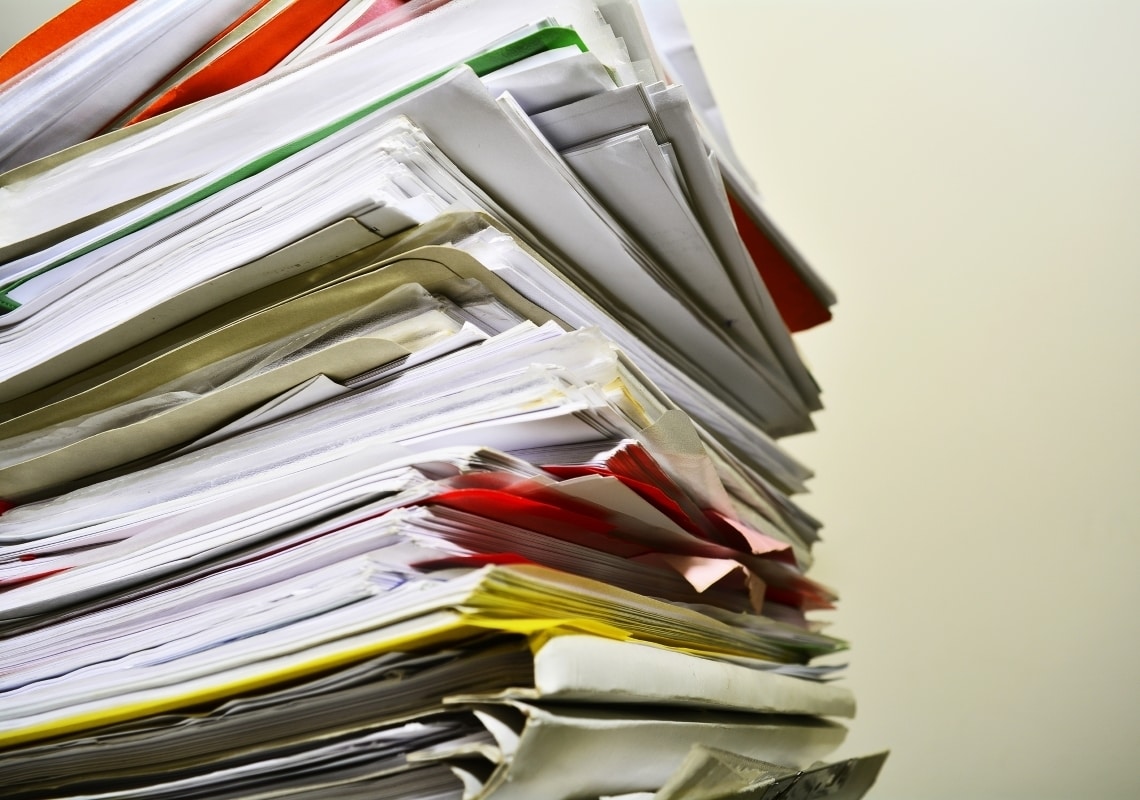One of the many jobs a family caregiver performs is coordinating medical care. They may keep the calendar for family caregivers, schedule appointments, and handle emergencies. Because of the many things a caregiver does, it’s important to remain organized.
This is especially true when it comes to making sure doctors and other caregivers can access an older adult’s medical records when needed. If you do not keep their medical history and other important information organized, mistakes in care can happen.
3 Tips for Collecting and Organizing Medical Records at Home
Below are some tips for family caregivers to collect and organize medical records in a manner that makes it easy to find the necessary information even in an emergency situation.
1. Basic Medical Records Information to Include
At a bare minimum, the following information should be readily available as part of a senior’s medical history:
1. Full name.
2. Birthdate.
3. Blood type.
4. A list of all allergies.
5. Information about chronic conditions.
6. Medication list, including dosages.
7. Dates of visits to the doctor.
8. Information about tests and screenings, including dates and results.
9. Information about surgeries or major illnesses.
In addition to information about health, the file should include copies of health insurance cards and any advance directives. It is also a good idea to keep contact information for the primary caregiver with the file so they can be contacted in case of an emergency.
2. Other Information That May Be Helpful
In addition to the basics listed above, the following information may also be useful to doctors and caregivers:
1. Contact information for all pharmacists and doctors.
2. A family history of major illnesses, such as cancer or heart disease, which may be hereditary.
3. Organ donor authorizations.
4. Vision records.
5. Dental records.
6. Notes about lifestyle habits, such as exercise, diet, smoking, and alcohol use.
3. How to Organize Medical Records
How you organize the information is really up to you. Use a system you find easy to maintain and can explain to others.
Here are some ideas for organizing information:
1. Use an easy to spot, boldly colored three-ring binder.
2. Clearly label the front of the file with the person’s name and “Medical Records” or “Emergency Medical Information.”
3. Collect business cards from healthcare providers and slip them into plastic sleeves in the binder. (Tip: You can purchase clear plastic sleeves for holding cards where collectible sports cards are sold.)
4. Instead of writing down appointment dates in a log, keep appointment reminder cards and place them in the file.
5. When you update a page in the file, write the date you made the update on the top of the page so you know how current the information is.
The hardest part of being organized is the initial undertaking of the task. Once you’ve created the medical history file, keeping it updated shouldn’t take much time. The time it does take will be well worth the effort if your parent ever needs emergency assistance.
Contact Care Options for Kids for Home Health Care Services
If you or an aging loved one are considering home health care services, contact the caring staff at Care Options for Kids. Call today at (888) 592-5855.
Sources
Caregiver.com
AARP






